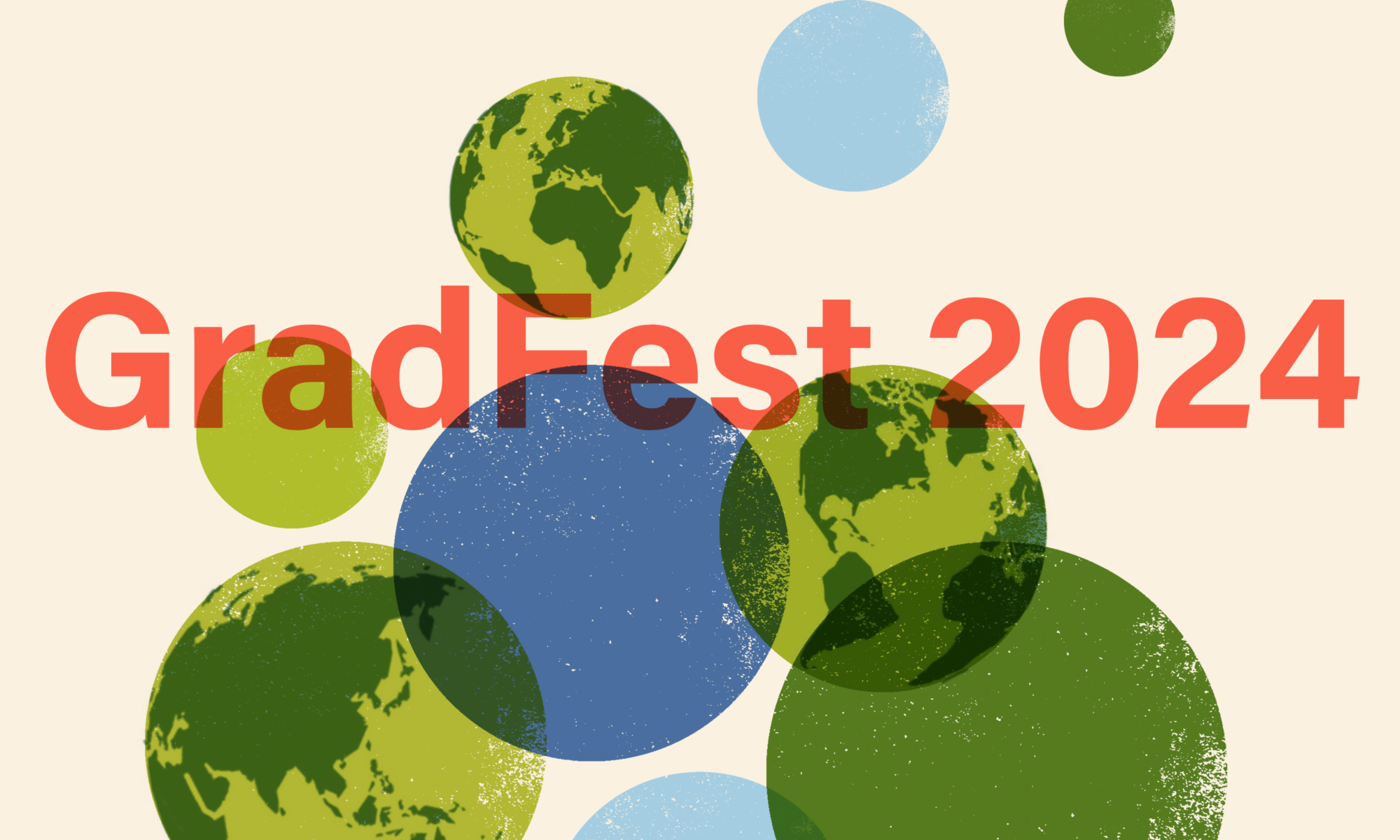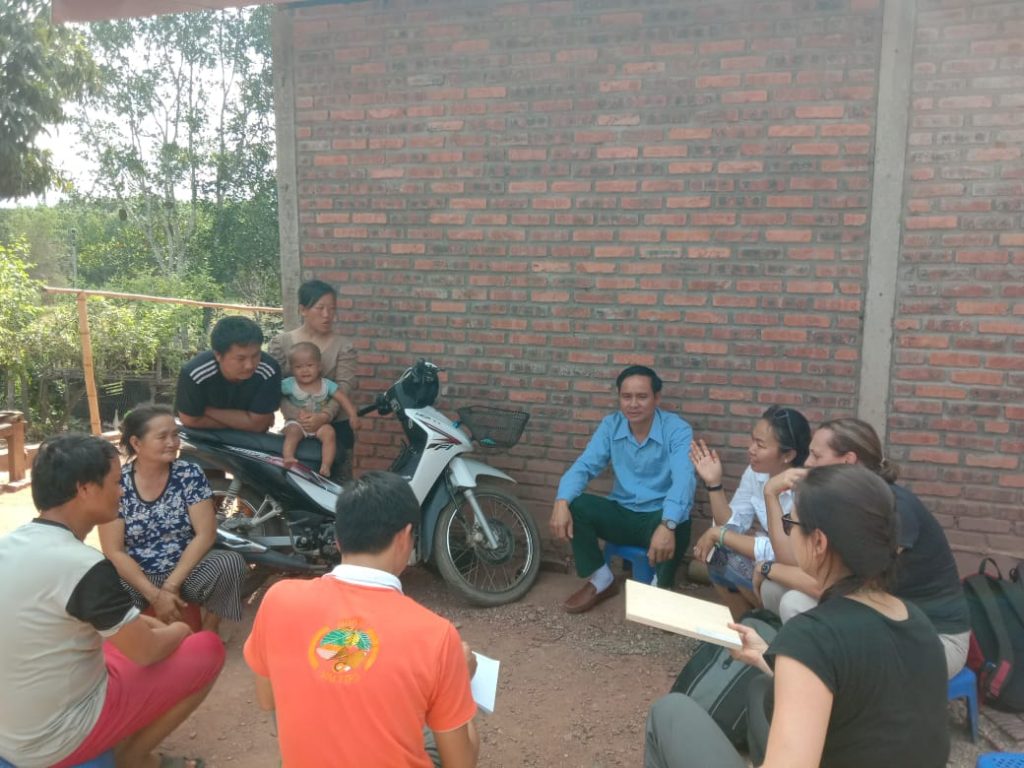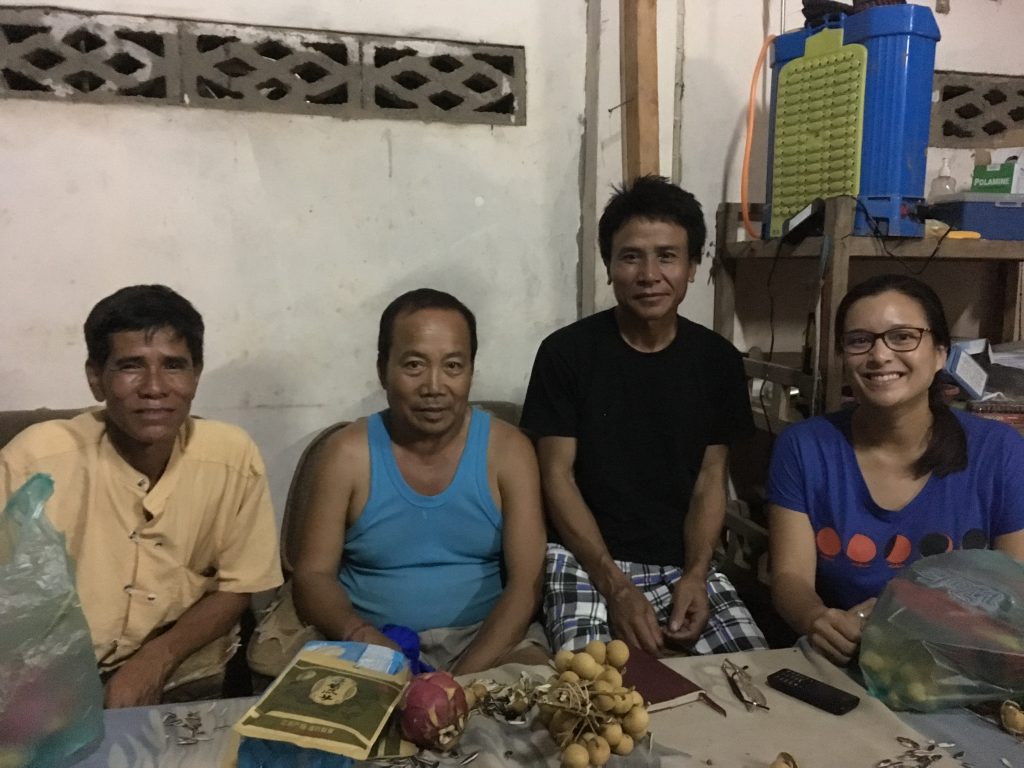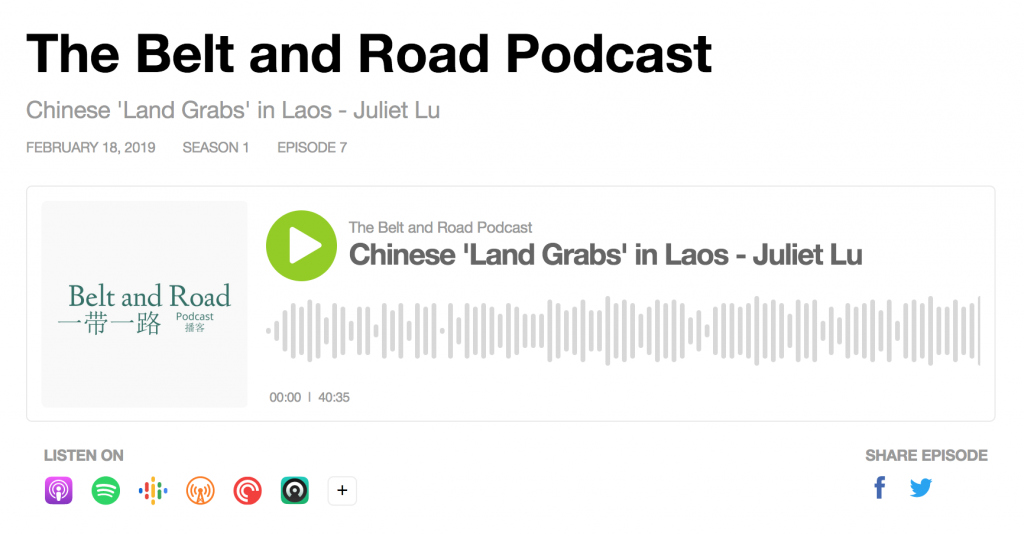
Feel free to contact Juliet at juliet.lu @ berkeley. edu or on Twitter (@_JulietLu) if you have questions or comments regarding the content here.
Juliet Lu arrived in Berkeley in 2013, after 3 years’ interning at the World Agroforestry Center in Kunming, China, and 2 years’ living in Laos working for a Swiss consulting firm. Her language skills and her apparent enjoyment of living and working in Asian cities-in-the-making, convinced me that she would thrive in Society & Environment and ESPM. Her doctoral research has since taken her to more out-of-the-way places in the China-Lao borderlands. She has used those language skills and her political ecological research skills to deepen and broaden her understandings of China’s global and domestic development programs.
Juliet’s seemingly unstoppable positive energy has seen her through coursework, writing, and an unmatched amount of service to the department (ESPM), the division (S&E), her lab (LandLab) and to her fellow graduate students. From inter-lab bowling tournaments to formalizing and funding social hours to organizing the 2019 Grad Fest, from Interdisciplinary Tea co-organizing to LandLab leadership, from faculty-graduate liaison to fundraising for the Department, Juliet has been an enthusiastic participant in everything ESPM. While she brought undergrads under her effervescent influence through teaching and mentoring, a high point was her collaborative development of a political ecology Jeopardy game that we immediately adopted as a permanent feature of my class. Sadly, COVID and our remote teaching forced us to let it go this year!
Meanwhile, Juliet found time to conduct nearly two years of new fieldwork in Laos and China, and to engage in research and professional meetings with East and Southeast Asian scholars and teachers. She assisted You-Tien Hsing when she was chair of the East Asia Center and did consulting in China and Laos to subsidize her research funds. An invitation to speak in China led to an opportunity that I wish I could have with all my students but funds usually do not allow: We traveled together to some of Juliet’s China field sites in 2017. We met rubber tappers and their managers in Yunnan, and women from my Indonesian research village who were working in Hong Kong. We were treated to a highly choreographed view of a land developer’s expansion in high-rise Guangzhou real estate, and visited Yunnan State Farms: a communist-era rubber estate undergoing major political-economic transformations. From there we ran in the reconstructed durian gardens in the province’s Tropical Botanical Gardens and had a Dai feast in a nearby village.
After successfully meeting the challenge of finding a new angle on the rubber business in Laos and southern China, and finishing her dissertation while sheltering in place, Juliet will take a post-doctoral research position at the Atkinson Sustainability Center of Cornell University. She has had a breath-taking and productive ride; one which is just beginning. I have no doubt Juliet will spread her excitement for learning, teaching, and life in general wherever she finds herself. Keywords: exuberance; joy of learning; food “studies“.
– Nancy Peluso, Professor, Society & Environment, Department of ESPM
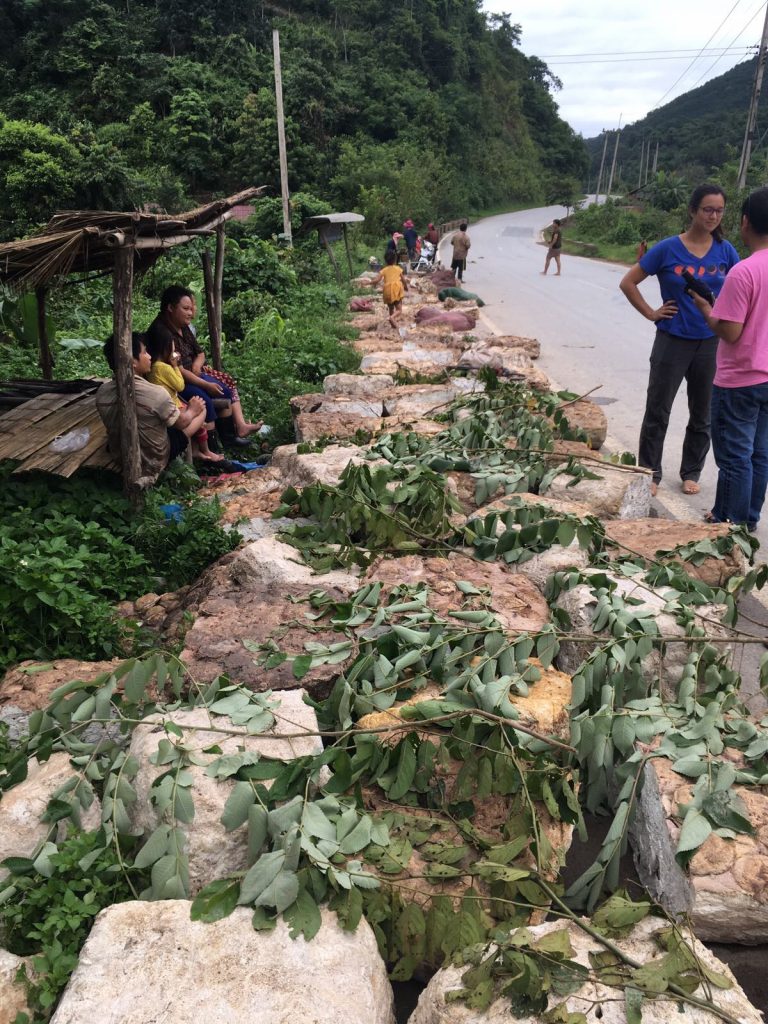
About Juliet
Juliet Lu is a doctoral student in ESPM with a focus on political ecology. She is advised by Dr. Nancy Lee Peluso and is a member of the Land Lab and the ESPM Graduate Student Association. She also co-hosts the Belt and Road Podcast, which covers the latest news and research on China’s growing impact on the developing world.
She worked from 2009-2011 at the World Agroforestry Centre in Yunnan, China, and from 2012-2013 with the Centre for Development and Environment in Vientiane, Laos. During that time, she studied communal forest management in Yunnan, the Grain for Green Program, agroforestry initiatives in Southwest China, and contributed to building a state database of foreign land investments in Laos.
Juliet’s dissertation examines the political economy of Chinese agribusiness companies’ investments in Laos – primarily in rubber plantations. Her broader research interests include the impacts of China’s growing demand for raw materials on land and resource management in Southeast Asia, the politics of resource governance and state formation in borderland regions, the rise of Chinese development cooperation initiatives, and discourses of environmental protection and sustainable development in the context of the Belt and Road Initiative.
Dissertation title:
Rubber’s Reach
How Chinese rubber investments transform landscapes, livelihoods, and state control in the Sino-Lao borderlands
My dissertation is a grounded, transnational study of the history and political economy of large-scale rubber plantations on both sides of the Sino-Lao border. Rubber plantations in China have always served not only as an important cash crop but as an instrument for extending state power. It was first established in China after the US placed an embargo on its rubber imports in retaliation for China’s involvement in the Korean War in 1951. In response, Mao Zedong launched a campaign to establish a domestic rubber base in the few areas warm enough to grow the crop. These also happened to be areas of dramatic biological and cultural diversity, and where the Chinese Communist Party (CCP) lacked strong, established political control. In Yunnan Province, my primary study site in China, the state’s drive to build a rubber base fueled a dramatic transformation of lush upland rainforests into manicured, orderly rubber plantation rows and helped the CCP flood the province, previously ruled by a diversity of ethnic minority groups, with Han Chinese plantation workers from other areas of the country.
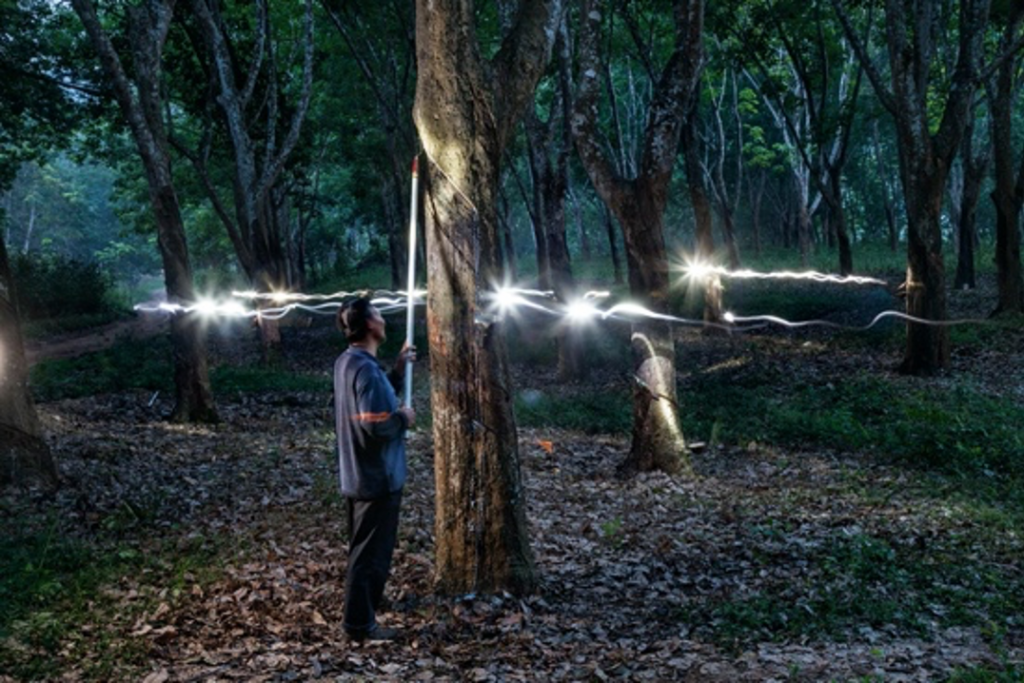
Rubber trees are carefully tapped before dawn 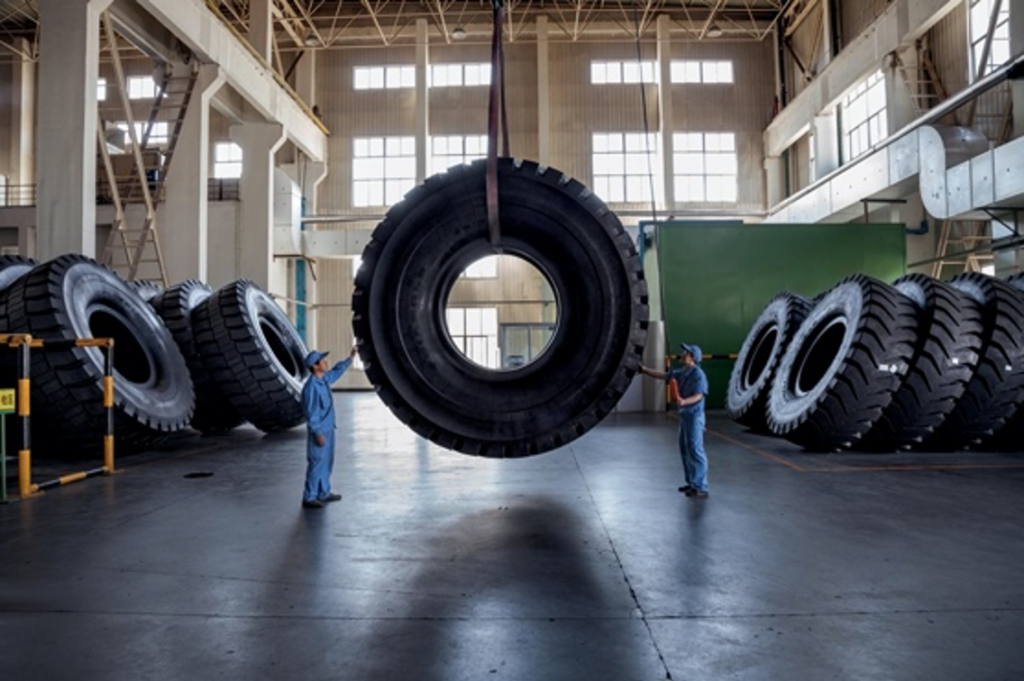
Rubber is a vital raw material for transport & industry
By the 2000s, China’s rubber sector had run out of land to expand into and, encouraged by new favorable Chinese and Lao state policies and fueled by a global rubber price rise, Chinese companies began to pour over the Yunnan border into Laos. Lao state officials often depict northern Laos as having vast areas of available land and a rural population thirsting for lucrative work opportunities on plantations. Chinese investors raced to sign contracts for these vast areas of land promised and expected to enjoy strong Lao state support and a grateful, cheap labor force. Instead, investors have struggled at each step.
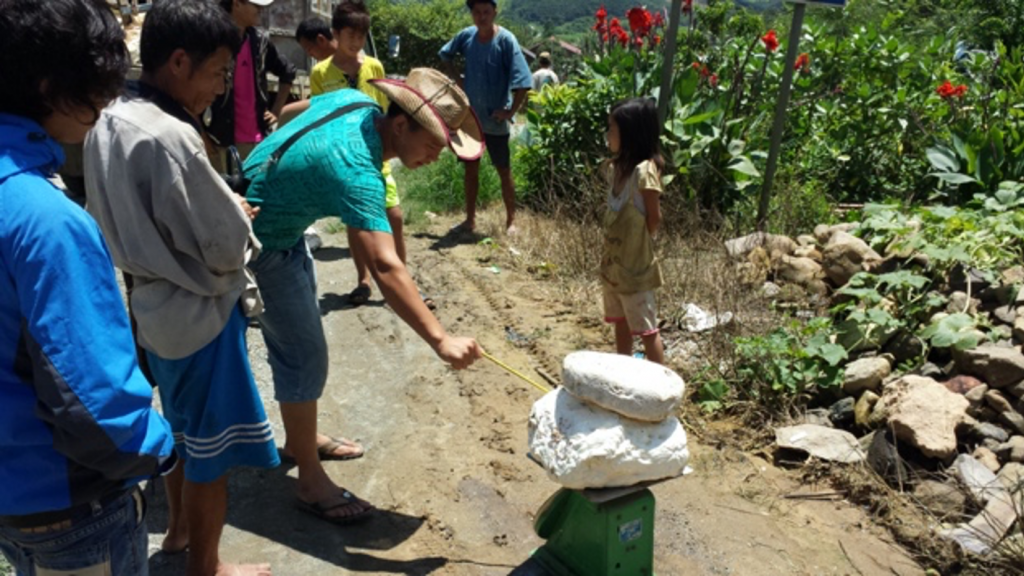
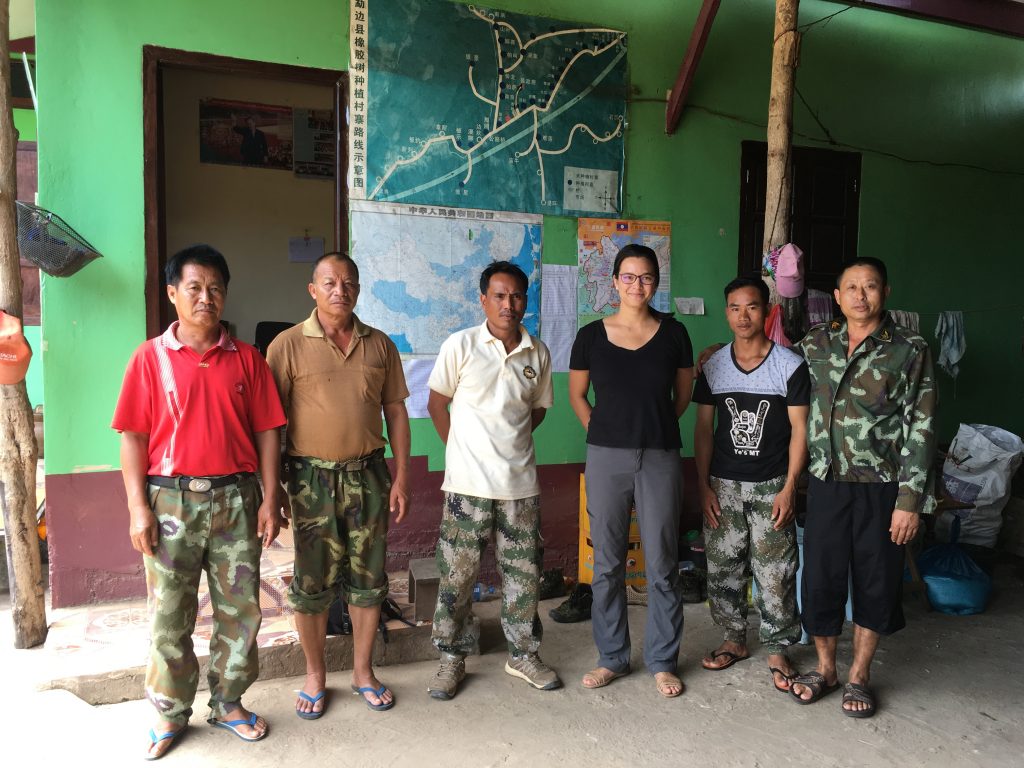
Despite widespread predictions of that Chinese rubber would take over northern Laos and investors would reap the benefits, I show that the Lao state and Lao rubber farmers have been able to use the Chinese rubber rush to their own advantage. Chinese investors have gained access to a considerable amount of land, but they have struggled to obtain the areas they initially thought were available, have had to fight (and more often than not fail) to maintain exclusive control over the latex they produce, and have been utterly unsuccessful in convincing Lao farmers of the appeal of wage labor on rubber plantations – in large part because many Lao farmers retained their own land and planted their own rubber which they tend instead. As a result, Chinese companies have had to adapt their approaches to gaining the support and favor of the Lao government and the cooperation of Lao farmers.
Broader Aims of Scholarship
My broader aim as a scholar is to improve understandings of the grounded nuances and contingencies around which Chinese capital is emerging as a global driver of environmental and economic change. In doing so, I hope to counter simplistic and adversarial portrayals of China that are increasingly common in the current political context. I present this as a case in which the mainstream global images of Chinese investment as a unilateral, purely exploitative force fall flat. Instead, intricate and contingent relationships emerge between Chinese companies, host country states, and local actors which deserve to be studied carefully, critically, and privileging perspectives of actors on the ground.
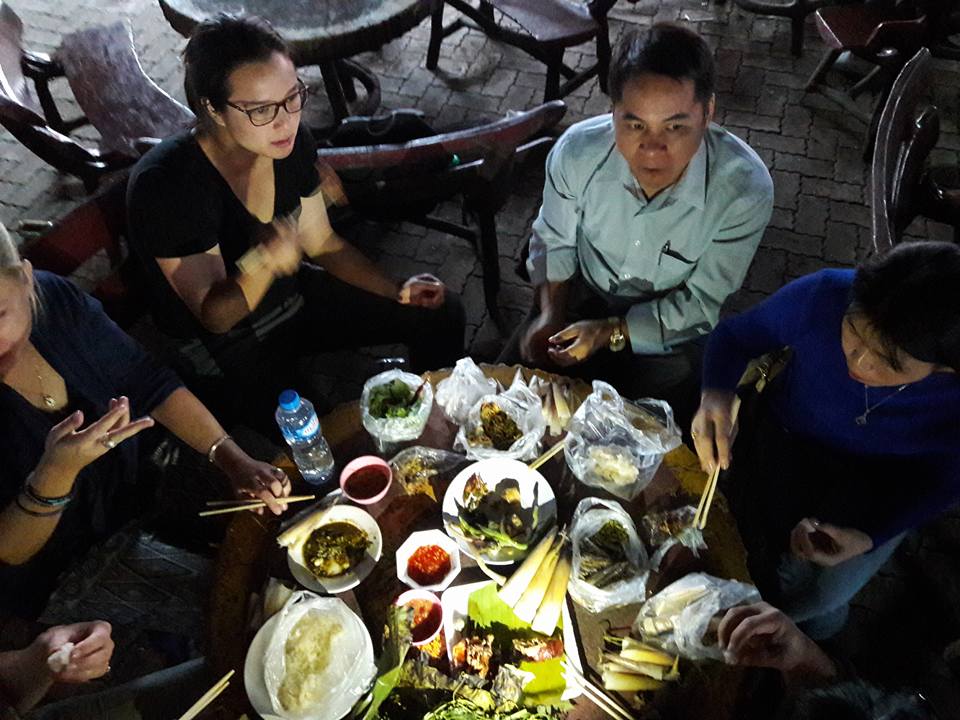
Photo by Phokham Latthachack 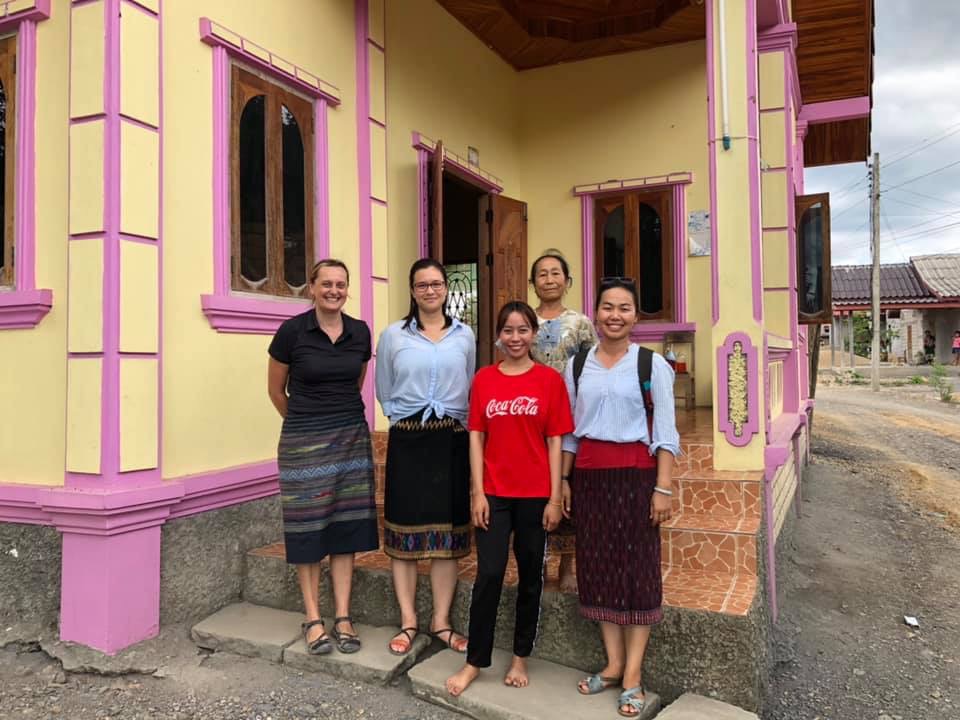
Acknowledgements
ESPM has been the most supportive and inspiring intellectual home I could have asked for in this journey. Every hour I’ve put into department service and organizing I’ve gotten back in the form of joy and friendship those efforts have produced. My advisor, Nancy Peluso, is a force of nature who has shaped every aspect of how I see the world and has taught me to fight fiercely for the things that matter in my research and in life. Louise Fortmann, You-Tien Hsing, Laura Enriquez, and Kathy Demaster – my quals and dissertation committee members – have challenged me and helped me grow in the most kind and thoughtful ways. The noble Lodge dwellers – especially Brian, Matt, Laura, Ashton, Tracy, Akos, and Jane – have seen the best and the worst of me and have held me up and pushed me forward as we went through this strange process together. My accountability and writing groups (Anti-Dread 2, Land Lab, the Agnotology Collective, Jesse R’s Writing Posse, Karly Miller, Cheryl Schmitz and Jenny Zhang) have enabled me, as a very socially driven but judgment fearing creature, to actually find and share joy (and agony) in the dissertation writing process. Words cannot describe my gratitude for the love, encouragement, and steadfast insistence that I keep my head up and keep making progress from Olivier Celhay – my research assistant, my motorbike chauffer, my beloved partner. Finally, my mother and faithful editor, Elizabeth Lu, has been an endless source of support and inspiration. My deepest gratitude to all.
Read some of Juliets’ peer-reviewed publications in these links:
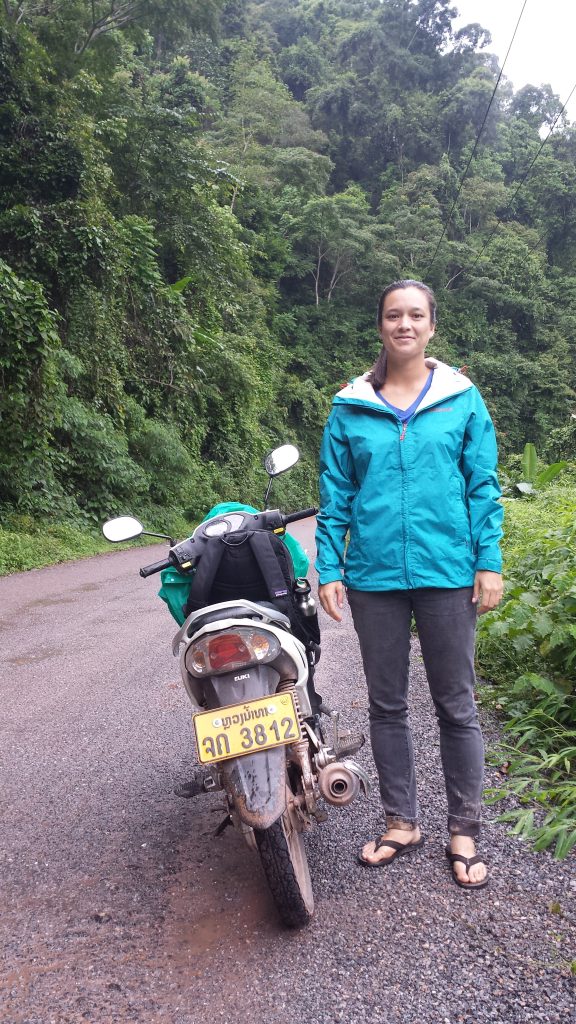
| Great expectations: Chinese investment in Laos and the myth of empty land |
| Tapping into rubber: China’s opium replacement program and rubber production in Laos |
| Grounding Chinese Land Investments: the nexus of global Chinese capital and local land politics in Laos. Forthcoming… |
Media & Outreach
Juliet was recently featured in the Stimson Center’s “America Matters to the Mekong“.
KALX Berkeley Radio Interview, “Political Ecology in China and Laos“
Side Hustles
- Consultant for Oxfam Hong Kong, Mekong Region Land Governance Project, Centre for Development & Environment
- ESPM Intramural Ultimate Frisbee Team
- ESPM Graduate Student Assembly (2014-4Lyfe)
- ESPM Alumni/ae Association, Co-Founder w/ Brian Klein & Ignacio Escalante (2020-4Lyfe)
Co-Host of the Belt & Road Podcast, and Feb 2019 Interview, “Chinese ‘Land Grabs’ in Laos” (click the image below to access it)
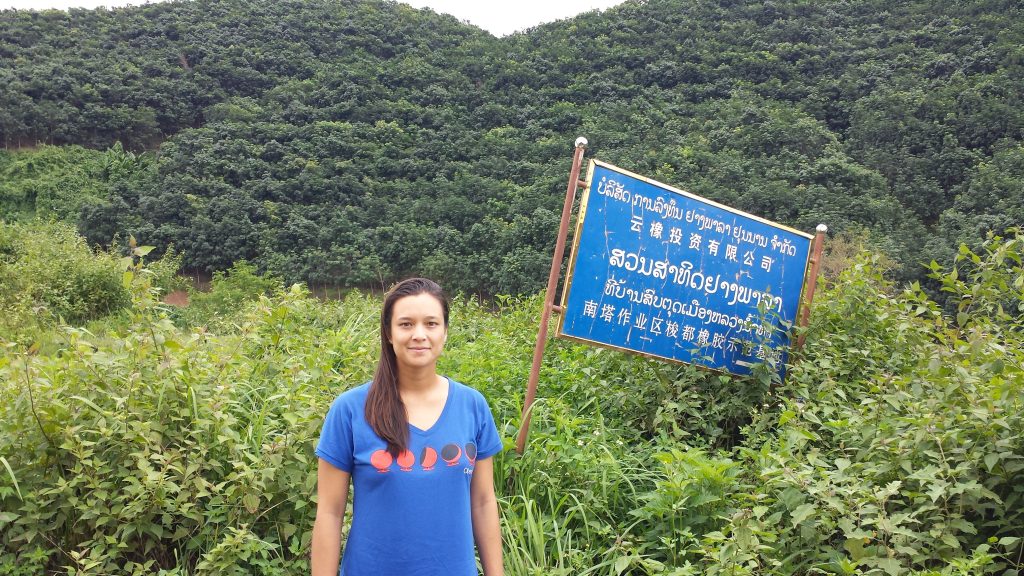
Next Moves
In September 2020 I am honored to be joining the Atkinson Sustainability Center at Cornell University as a Postdoctoral Researcher.
Juliet’s dissertation research has been funded by the following agencies and awards
- Fulbright-Hays DDRF
- Center for Chinese Studies (Liu Graduate Research Fellowship, Pamela and Kenneth Fong Graduate Student Fellowship)
- The Institute for East Asian Studies (Koo Chair Fellowship for Outstanding Graduate Students in EAS)
- The Institute for International Studies (John L. Simpson Memorial Research Fellowship in International and Comparative Studies)
- The BRICS Initiative in Critical Agrarian Studies
- UC Berkeley Chancellor’s Fellowship for Graduate Study
- Keen Fellowship in Forest Entomology Award (ESPM Continuing Fellowship)
